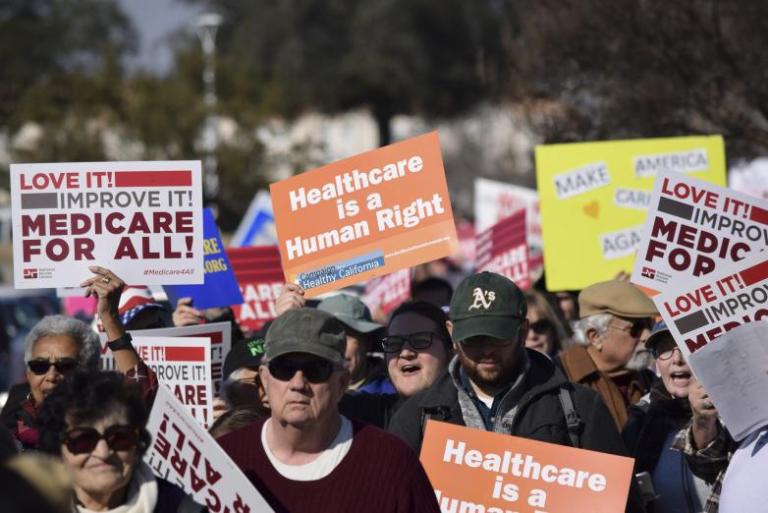Sen. Bernie Sanders (I-Vt) has introduced “The Medicare for All Act of 2017.” It would create a universal health care system for the United States, offering free medical care for everyone. Though the bill has no chance for passage in the Republican-controlled Congress, Democrats–including virtually every potential presidential candidate–are lining up in support.
Already the federal government offers health care for those of us 65 and over. Medicare is a popular program and it works pretty well. “Medicare for All” is being billed as simply extending that retirement program for everyone. But it does much more.
Medicare recipients have to pay usually $134 every month, more or less depending on income. That’s for doctor visits, though hospital stays are mostly free. But there are deductibles and co-pays. And dental, eye-care, and other medical categories aren’t covered, unless you buy supplemental insurance, which can get expensive. Medicine requires separate policies that you get to pick out, but which can be pricey. (See this guide to Medicare complexities.)
But the Bernie Sanders plan covers everything, with no co-pays. Prescription drugs, emergency surgery, mental health, eye-care, all the doctors visits you want–all free. (You would only have to pay for elective surgery, such as cosmetic procedures.)
What a deal! Who wouldn’t want free health care?
This would be much simpler and more effective than Obamacare.
Yes, taxes will have to be raised to pay for it. Sen. Sanders says that he would introduce tax measures in a separate bill. But with no more monthly health insurance premiums, couldn’t we afford some higher taxes?
Today, most people have their health insurance through their employers, who pay a large part of the expense. If companies didn’t have the enormous expense of having to pay health benefits, wouldn’t they be able to increase wages? Wouldn’t they be able to afford some higher taxes?
After all, most advanced industrial democracies of the world have some kind of universal health care. Great Britain, Canada, Australia. . . .Those are countries that are a lot like us, and they haven’t exactly lost their liberties by succumbing to this kind of health care socialism.
Yes, people there complain about waiting lists for surgeries and inconsistent care. But the health care programs in those countries remain very popular. Even the conservatives there don’t want to replace them.
That will be the pitch before the American people about why they should elect Democrats who would implement Medicare for All.
I don’t know if the American public is conservative enough to resist a program like this.
The key, of course, is how much it is going to cost the federal government, already swimming in enormous debt. And, politically, how much it is going to cost businesses and the public.
What and how much will the new taxes amount to? How disruptive will these new taxes be?
As we should know by now, few things are more expensive than things that are free.
And then there is the question about what the role of the federal government should be. Should we really look to the government to take care of our health and to preserve our very lives? Doesn’t that make the state close to divine, in our dependence upon it?
But I fear that such principles won’t carry much weight with the public who may be dazzled at the thought of “free health care!”
Photo by ufcw770, Medicare-Bakersfield-2017, Flickr, Creative Commons License












